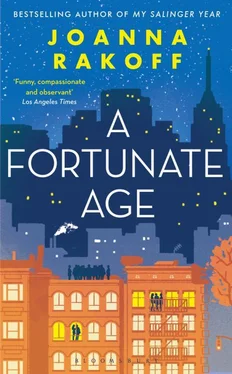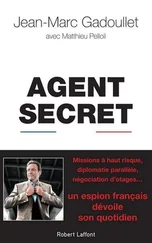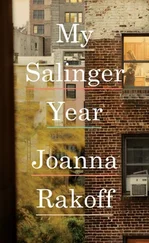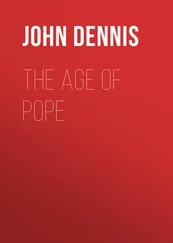But here she was sobbing again, and yet, she almost felt like it was someone else, some other girl, sobbing into her pillow, thinking these childish, petty thoughts that had somehow become her own: that she didn’t want to give back her ring, or her married name, or the handsome man she’d married, or his friends who had become her friends. She didn’t want to go back to being alone in the world and having no one to care for but herself—she had never really been good at taking care of herself anyway. And if she left Tuck, what would keep her here, in New York. Her job, her friends, yes, but what were such things compared to a marriage ? She’d thought friendship so important before she married, but now she felt that her friends didn’t really know her—couldn’t really know her—as well as Tuck did, even if that knowledge made him hate her. There was no point, she’d realized lately, in trying to talk to most of them about anything important. If she complained about Tuck, they offered her quick solutions, the kinds of things you read in stupid women’s magazines. If she spoke of him positively, they glanced at one another nervously. They understood nothing. They hadn’t seen her at her most base, screaming until her chest ached, sobbing in bed and bleeding; nor had they ever made her happy the way Tuck did, made her feel that she could do anything, be anything. She had known she wanted him—and only him—from the first moment she saw him, striding up the steps in front of Low Library. And still, now, when he walked into the room, she forgot that the rest of the world existed. But perhaps this was the problem. Each time he walked into the room, she greeted him like a drowning woman clutching a life raft. And each time he walked out the door, her heart seized with panic that he was never, ever coming back.
As the afternoon wore on, her eyes drooped and closed. The noises of the clinic—the squeak of the nurses’ rubber shoes, the clang of metal carts, the shouts and cries and chatter of patients—receded into a sort of background chorus, much like the traffic outside her apartment, which had kept her awake for one night, years back, when she and Tuck first moved in, then never again. Curled inside Emily’s soft sweater, the hospital blankets heavy against her legs, she slept a thick, dreamless sleep. When she woke, the sky pressed black against her window. The pigeons were gone. Someone had removed her lunch tray and replaced it with a dinner tray, the food still giving off faint wisps of steam. On the table beside her bed lay a copy of The Forsyte Saga —the copy she’d given Emily a few months back, after Emily had asked “What should I read next?” though Lil had never expected Emily would really read it. Lil had the same edition at home, a wan Sargent on its cover. She looked around the room. There was no suitcase, no shopping bag filled with clothes, no signs that Tuck had come by. She shivered a little in her sweater—she’d already begun to think of it as hers, rather than Emily’s—and realized that she felt something akin to relief. He was gone, finally. She snapped on the bedside light and ran her finger over the reproduced Sargent, a blushing girl, of about Lil’s own age, with red-gold hair and dark, serious eyes, who was, Lil supposed, meant to represent the doomed Irene Forsyte.
Inside the book she found a note from Emily, saying that she hadn’t wanted to wake her, that she’d bring clothes and things for Lil early tomorrow. Which meant, Lil thought, that it was true, it was true: Tuck was gone. She stretched her arms over her head, plumped her pillows, and opened the novel, flipping past the introduction and the table of contents to the front page of the first book, “The Man of Property.” The epigraph, which she’d somehow never noticed, though she’d read the book twice, read: “You will say… ‘The slaves are ours.’”
It was Shakespeare, apparently, The Merchant of Venice . One of her favorite plays, yet she couldn’t recall the line, nor who spoke it. She turned the page and began reading of the Forsytes “at home”—a party for the engagement of young June Forsyte to Philip Bosinney, an architect. The marriage, Lil knew, would never take place. Phil would fall in love with Irene, the unhappy wife of June’s uncle Soames, and then he would die, crushed under a carriage wheel. June would become a spinster, a bit of a kook. Irene, having tasted real love and passion, would leave Soames. Many years later, she would marry again—this time happily—to Soames’s cousin Young Jolyon, an amiable, left-leaning artist.
All this knowledge was, suddenly, too much for her. She could not read of June’s engagement, not right now, knowing what the future held for the girl, fictive though she was. She could hear the crunch of bones as the carriage wheel bore into Phil Bosinney.
Slowly, Lil closed the book, curled back on herself, and drew the covers up around her shoulders. She was tired again. Very tired. And her head ached. Why had she said that to Emily, earlier, that she should have married Young Jolyon instead of Soames? The metaphor was untrue, imprecise, sloppy. Since leaving Columbia, she’d let her mind go. She no longer thought about things with the rigor of a scholar. I want to be that person again , she thought. Tears, genuine ones, came to her eyes again, and she shook her head against the pillow, as if to ward them off. How can I be that person again? She closed her eyes and pressed her cool palms to them. Jolyon instead of Soames. Ridiculous. Irene had married Soames for money, not for love. The opposite of Lil, really, and a mistake of truly tragic proportions, as Galsworthy made all too clear. Though nothing, Lil supposed, compared to marrying for love , only to wake one morning and find it vanished. Or, she thought, to wake and find it had never existed.
One morning in June, Sadie Peregrine wheeled her son, Jack, west on Grand Street to the new Seward Park playground, and took her accustomed seat under the shade of the young, vulnerable fig trees that shaded the southern rim of the main play area, with its thick rubber matting and developmentally appropriate jungle gym. At five that morning, Ed had kissed her good-bye, grabbed his orange gym bag, and headed to JFK. By nightfall he would be in Sarajevo, shooting his and Jonathan’s next film, about journalists who hunt down a war criminal. This time their little fledgling company—just he and Jonathan and a bunch of interns—was producing, in conjunction with Miramax. “Out!” said Jack, thrusting his body in the direction of the swings. “Out! Out!” To their left, a group of young mothers—well, mothers of roughly her own age—were engaged in hushed, fervid conversation, their eyes flicking ominously toward Sadie, their ringed hands clutching tall pink paper cups bearing the black, retro logo of the coffee shop just west of the park. Their toddlers waddled up the fat lacquered steps that led to the baby slide, gripping the shiny red handrails with small, chubby fingers, shrieking and squawking and shouting “ Mama! ” and “Mah- mee !” as they made their precarious ascent.
On the other side of the park, to Sadie’s right, a fleet of spring-mounted metal ducks wobbled atop shiny round bases, their long beaks set in expressions of exaggerated forbearance. In the three months she’d been coming to this park, she’d never seen a child go near them, perhaps because a clique of wool-clad Orthodox women had staked this area for their kaffeeklatsch. Today, as always, they chattered loudly in Yiddish, arms folded across their chests, eyes tracking their multitudinous broods as they ran in circles around the perimeter of the playground, just inside the edges of the safety mat, shrieking and squawking in their own, slightly more guttural style, their dark, smocked dresses and sweater vests oddly pristine and charmingly outmoded, the clothing of storybook children. Every so often, they reversed directions and shouted out the name of one of their numbers: Shlomo, Hudl, Chani, Tzipporah, Shoshana, Gitl, the names of Sadie’s Goldschlag ancestors, who had, like so many of their kind, lived in this neighborhood a hundred years prior, straight off the boat from Russia. They’d all left—for Brooklyn, the Bronx, Long Island. All but her childless aunt Minnie, her grandfather’s sister, who had married the neighborhood dentist and taught school at P.S. 110 on Cannon Street and bought her apartment in the union co-ops. The few remaining Goldschlags—cousins of her mothers, out on the Island—were still furious that she’d left the place to Sadie (“What does she need it for? With all that money from the father’s side?”), never mind that she and Rose had been Minnie’s most frequent—sometimes only —visitors in recent years, that they’d brought her uptown for lunch every Sunday.
Читать дальше












